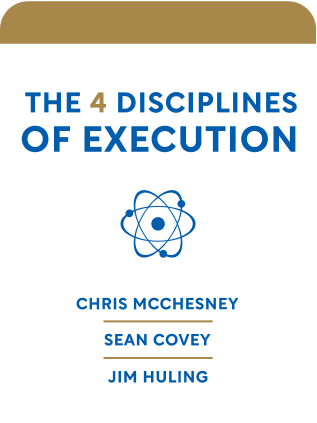

This article is an excerpt from the Shortform book guide to "The 4 Disciplines of Execution" by Chris McChesney, Sean Covey, and Jim Huling. Shortform has the world's best summaries and analyses of books you should be reading.
Like this article? Sign up for a free trial here .
What is the 4DX methodology? How does it offer a path to executing your goals?
The 4DX methodology comes from the book The 4 Disciplines of Execution. The disciplines are focus, leverage, engagement, and accountability.
Read on for more about the 4DX methodology and how the disciplines work together.
What Is the 4DX Methodology?
4DX stands for the 4 disciplines of execution. 4DX is an operational system containing the disciplines: focus, leverage, engagement, accountability. They are principles (not guidelines or practices) that help you not only achieve a particular strategy, but that create lasting behavioral change, therefore permanently amping up the performance of your team. 4DX has some ancillary benefits as well, mainly that your employees will become more engaged, and they can apply what they’ve learned from 4DX in the workplace to their personal lives.
The four disciplines aren’t new ideas or rocket science—they’re natural laws. Companies such as Weight Watchers have been successfully using similar methods for years. You’re probably already goal-setting, collecting data, creating scoreboards, and holding meetings. However, 4DX takes you beyond understanding principles to actually implementing them. 4DX prescribes a specific, particular way of applying the four disciplines that should earn you the kind of results you’ve never been able to achieve before.
The authors researched the disciplines, experienced trial and error, and have offered the following list of research to assure you that the 4DX methodology is well-tested and will work in any country or field:
- Surveyed 13,000 people internationally
- Surveyed 17 different industry groups
- Internal assessments of 500 companies
- Survey almost 300,000 leaders and team members
- Worked with people in 1,500+ implementations
Remember that the disciplines are laws of nature. It doesn’t matter if you like them or even think they’re necessary—they will act on you. You may as well learn to use them.
4DX is not designed for calming the whirlwind—it is designed to help you execute strategic goals while still maintaining the whirlwind.
There are 3 things to keep in mind while reading this book:
- The disciplines are easy to understand but hard to put into practice. They take a lot of effort over a long period of time. The end goal has to be wildly important to merit the commitment. When you achieve the end goal though, you’re not just achieving that specific goal; you’re training your organization to achieve more goals using the same methods.
- The disciplines are counterintuitive. Some of the things you’ll be asked to do will feel unnatural, or run against your instincts or what you’ve always believed about execution.
The disciplines work in tandem. Using only one might help, but they’re most powerful when used together as they’re interrelated. You must do them in the order they appear.

———End of Preview———
Like what you just read? Read the rest of the world's best book summary and analysis of Chris McChesney, Sean Covey, and Jim Huling's "The 4 Disciplines of Execution" at Shortform .
Here's what you'll find in our full The 4 Disciplines of Execution summary :
- The 4 disciplines that can make any strategy a successful reality
- Why a great plan falls apart when you don't think adequately about execution
- The 6 steps you need to scale the 4DX model across an entire organization






